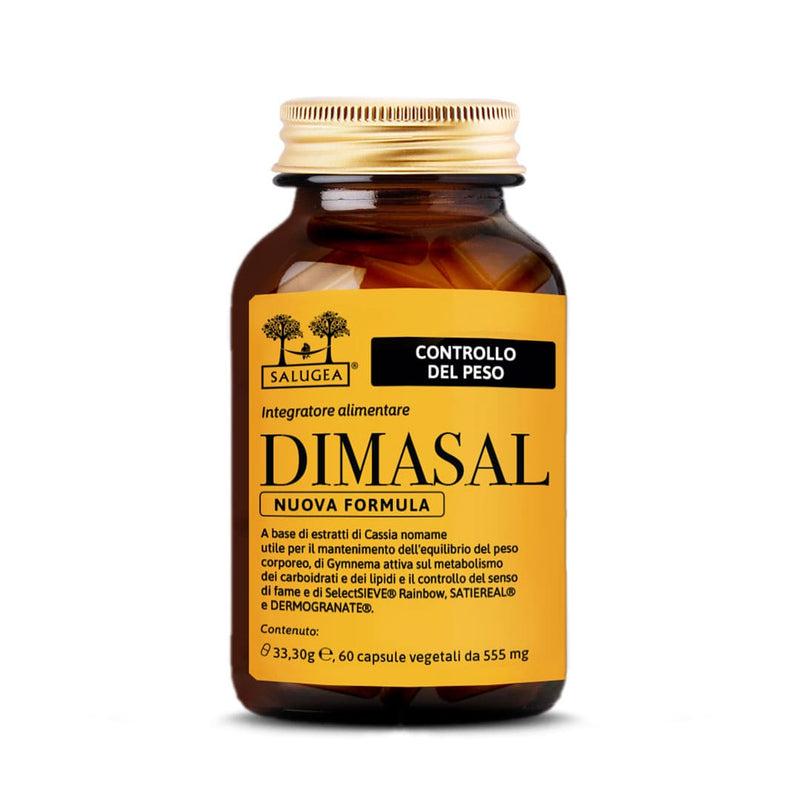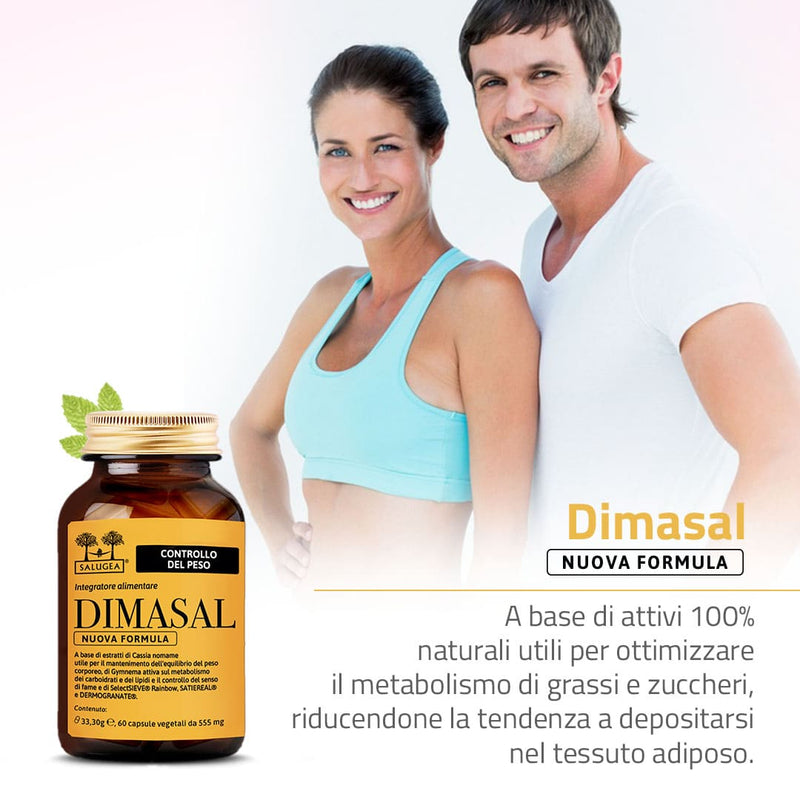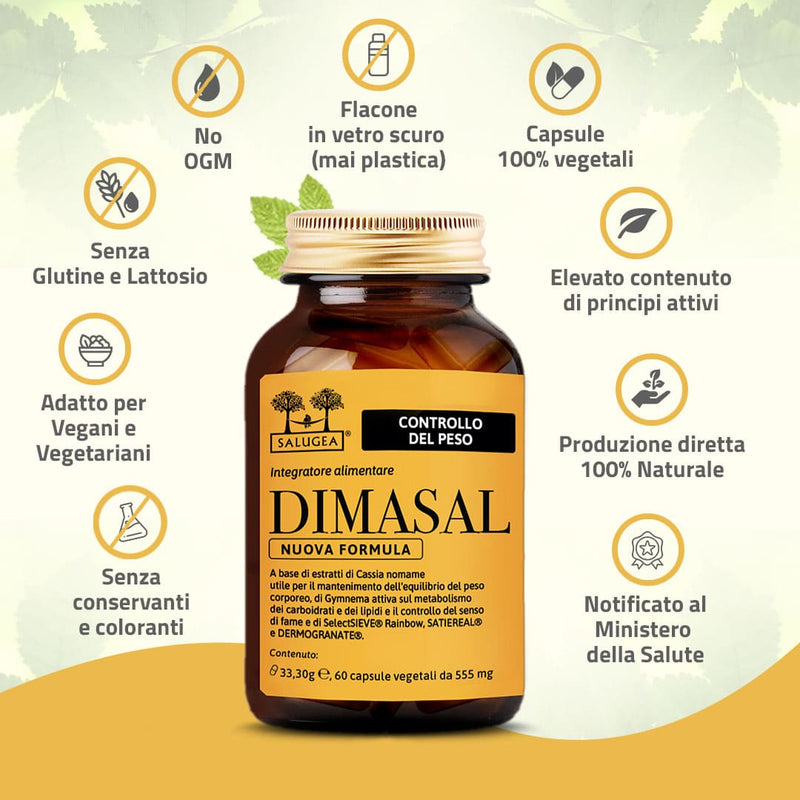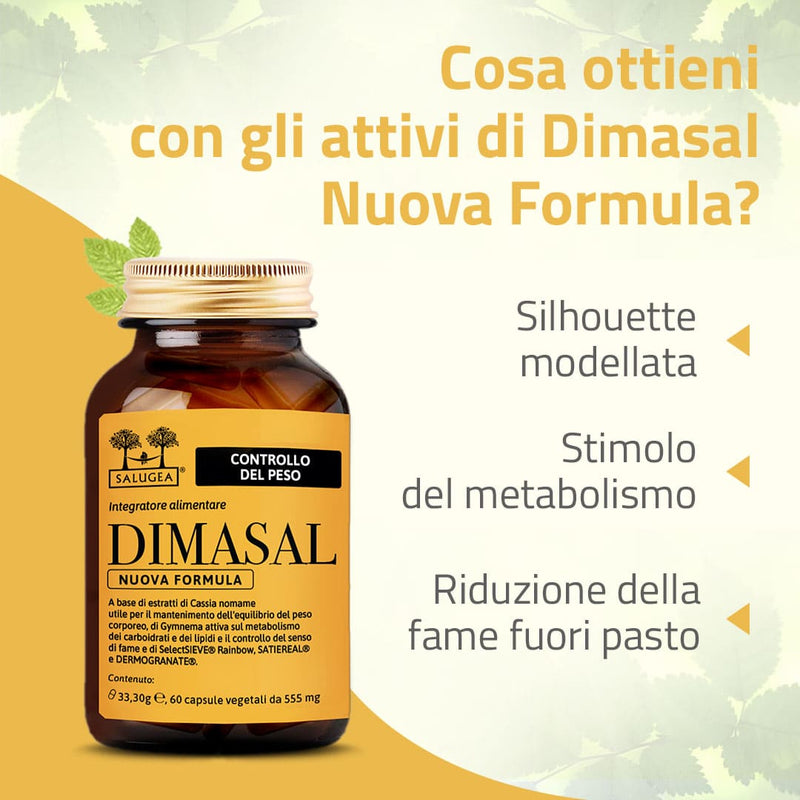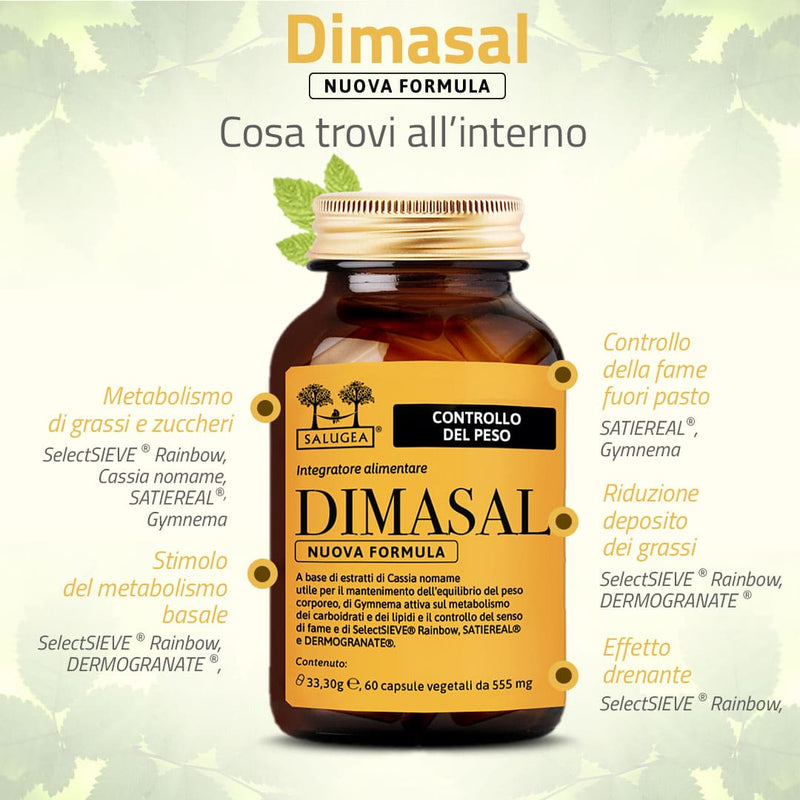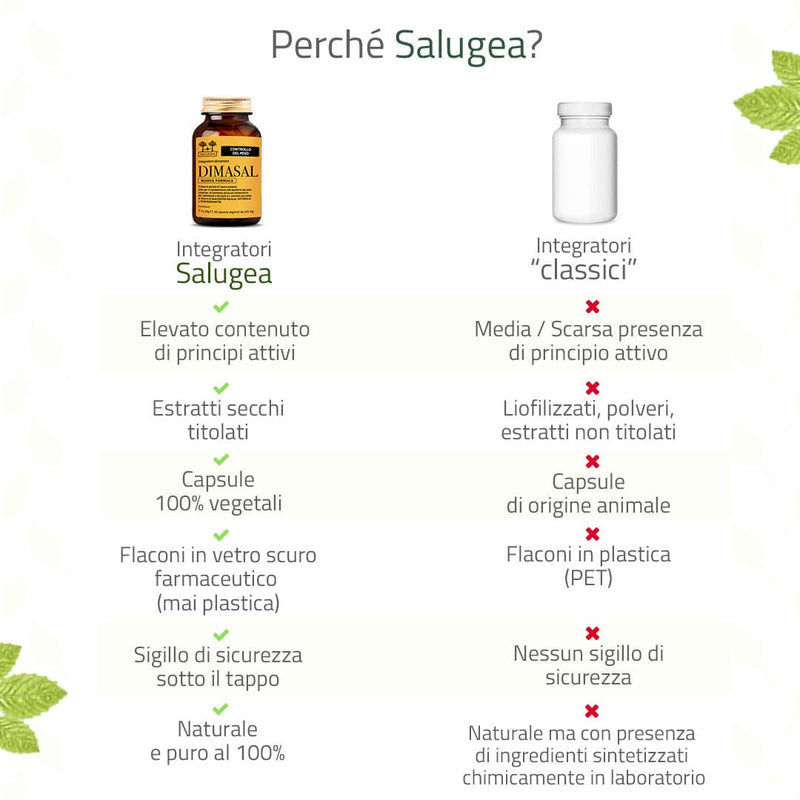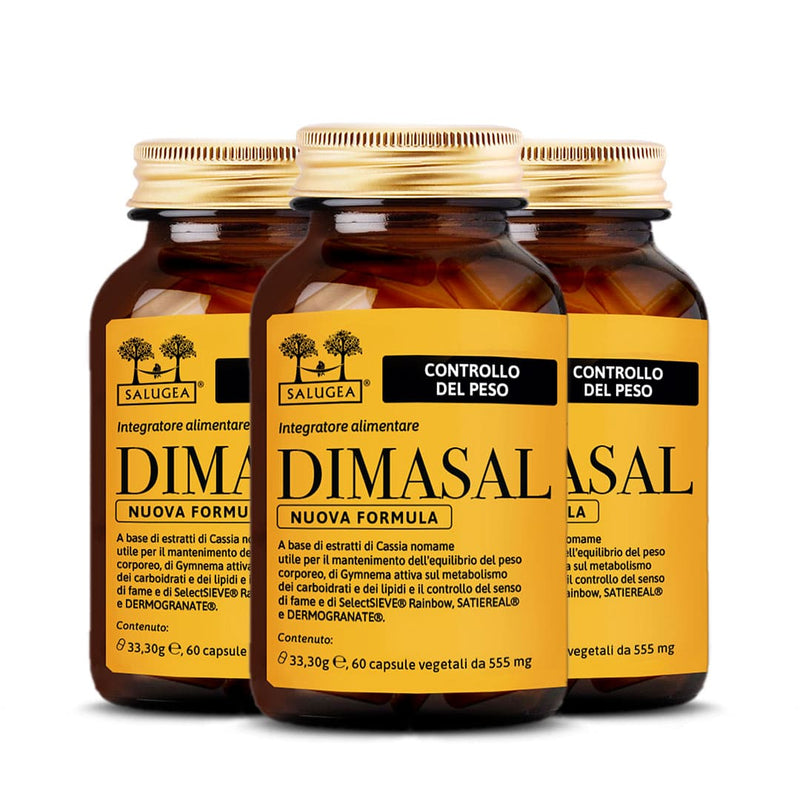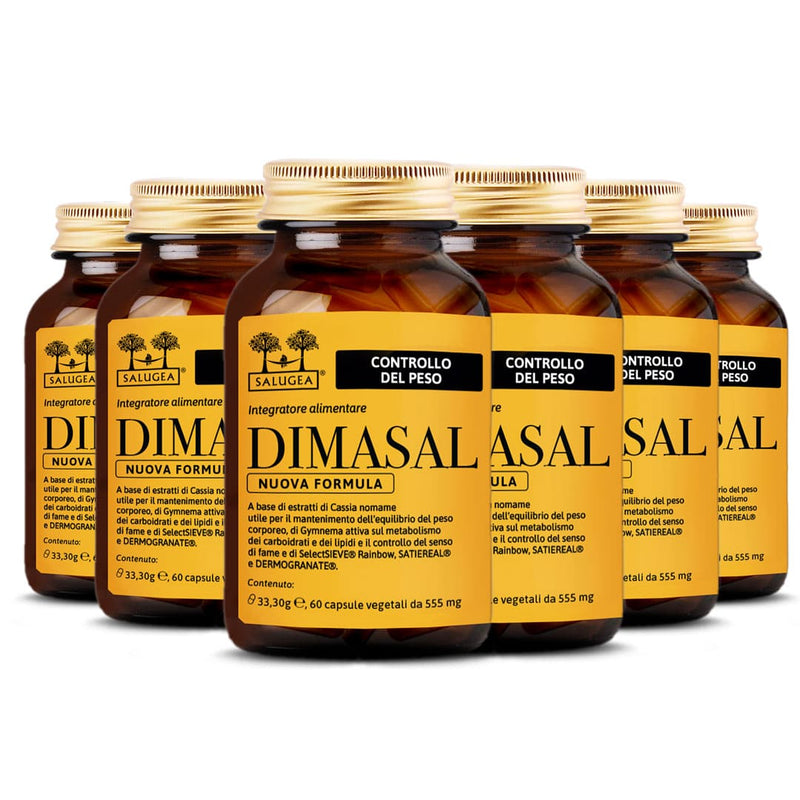Scientific Insights
The state of affluence and comfort that has been characterising modern society for the last few decades, has led to a more sedentary life and a high consumption of foods low in nutritional value and rich in fat and carbohydrates.
Sedentary life and work, combined with a diet low in nutritional values, are the main causes for the rise of health issues related to overweight and obesity.
Data from a 2015 ISTAT Survey (ISTAT=Italian Survey Institute)[6] show that more than one-third of the Italian adult population (35.3%) is overweight, while one person out of ten is obese (9.8%). In general, 45.1% of Italians aged ≥18 years are overweight.
Besides, it appears that southern regions have the highest prevalence of obese people (Molise 14.1%, Abruzzo 12.7%, and Puglia 12.3%) and overweight people (Basilicata 39.9%, Campania 39.3%, and Sicily 38.7%) compared to northern regions (obese people: Bolzano 7.8% and Lombardy 8.7%; overweight people: Trento 27.1% and Valle D'Aosta 30.4%).
The percentage of the overweight population increases with age, from 14% in the 18-24 age group to 46% among the 65-74 age group, while obesity increases, from 2.3% to 15.3% within the same age groups.
Moreover, this condition is more prevalent among men than women (overweight: 44% vs. 27.3%; obesity: 10.8% vs. 9%).
According to the World Health Organization (WHO), even if malnourishment persists on Earth, obesity is one of the major public health problems worldwide[7].
This phenomenon also affects populations in emerging countries as they have easier access to junk foods high in fat and carbohydrates, while their diet is too often low in fruits and vegetables. Besides, the most disadvantaged populations tend to take less care of their physical health and well-being.
In addition to being a health problem, obesity and overweight can also cause psychological distress.
It is a matter of fact that today's society tends to marginalize and stigmatize people suffering from this kind of disorders, thus increasing their discomfort and lack of self-confidence. Very often, then, resignation takes over which leads to low self-esteem and to the inability to take care of one's health.
It is important to understand that being overweight or obese equals to NOT being healthy. In fact, obesity is a risk factor for several chronic diseases, especially cardiovascular[8] and metabolic disorders.
Hence, prevention plays a major role in this kind of health issues. Prevention is possible through a healthy lifestyle that includes a balanced diet, the right food supplements, and some physical activity according to the person's fitness level.
This would allow for the body weight to remain under control and to avoid all the health risks due to overweight or obesity.
Several plant active principles can be successfully included in a nutrition plan to help the body maintain a healthy weight.
EXPERIMENTAL PHYTOTHERAPY
SelectSIEVE® Rainbow
A patented ingredient containing Black Rice, Kiwi, Red Orange and Pineapple dry extracts.
Black Rice
- Ito VC, Lacerda LG. Black rice (Oryza sativa L.): A review of its historical aspects, chemical composition, nutritional and functional properties, and applications and processing technologies. Food Chem. 2019 Dec 15;301:125304. doi: 10.1016/j.foodchem.2019.125304. Epub 2019 Jul 31. PMID: 31394335.
Black rice contains numerous nutritional and bioactive components including essential amino acids, functional lipids, dietary fiber, vitamins, minerals, anthocyanins, phenolic compounds, γ-oryzanol, tocopherols, tocotrienols, phytosterols, and phytic acid.
Several studies have been conducted on black rice for its alleged health benefits when consumed regularly. The review focused on the chemical composition, nutritional and functional properties of black rice.
Due to its nutritional value, black rice can be used in the production of healthy foods and beverages such as functional products and gluten-free cereal, thus providing additional health benefits for consumers.
- Kim SP, Nam SH, Friedman M. Mechanism of the antiadipogenic-antiobesity effects of a rice hull smoke extract in 3T3-L1 preadipocyte cells and in mice on a high-fat diet. Food Funct. 2015 Sep;6(9):2939-48. doi: 10.1039/c5fo00469a. PMID: 26190448.
The study evaluated the inhibitory effects of the black rice extract on adipogenesis both in vitro and in mice fed with either high-fat diets (HFD) or normal diets (ND). At concentrations of 0.1% and 0.5%, the extract has been shown to reduce cellular lipid content in preadipocytes with a subsequent strong anti-adipogenic effect. Recent findings confirm that Black Rice extract suppresses the expression of adiponectin - a marker of adipocyte differentiation.
The anti-adipogenic properties of Black Rice were confirmed in vivo by feeding obese mice with a high-fat diet. At the end of the 7-week study, the administration of 0.5% and 1% Black Rice extract resulted in a 66.9% and 72.5% reduction in body weight gain, respectively. Besides, normal levels of total cholesterol and triglycerides in plasma and liver were restored, abnormal serum levels of leptin and adiponectin were normalised, and the liver normal weight was recovered.
These results confirm that Black Rice extract can be used as a multifunctional anti-obesity food additive.
Kiwi
- Deters AM, Schröder KR, Hensel A. Kiwi fruit (Actinidia chinensis L.) polysaccharides exert stimulating effects on cell proliferation via enhanced growth factor receptors, energy production, and collagen synthesis of human keratinocytes, fibroblasts, and skin equivalents. J Cell Physiol. 2005 Mar;202(3):717-22. doi: 10.1002/jcp.20161. PMID: 15389574.
Purified polysaccharides from Kiwifruit (Actinidia chinensis L.) were tested in vitro to investigate their role as regulators of the human keratinocytes, fibroblasts, and skin cell physiology.
Kiwi polysaccharides stimulated human keratinocyte proliferation by up to 30% while mitochondrial activity was stimulated by nearly 25%.
In skin equivalents, it was shown that the polysaccharides led to a doubled collagen synthesis of fibroblasts compared to the normally strongly reduced biosynthetic activity.
Collagen synthesis is important as it helps maintain the skin structure in optimal conditions, especially during the slimming phase.
Blood Orange
- Dallas C, Gerbi A, Elbez Y, Caillard P, Zamaria N, Cloarec M. Clinical study to assess the efficacy and safety of a citrus polyphenolic extract of red orange, grapefruit, and orange (Sinetrol-XPur) on weight management and metabolic parameters in healthy overweight individuals. Phytother Res. 2014 Feb;28(2):212-8. doi: 10.1002/ptr.4981. Epub 2013 Apr 3. PMID: 23554029.
The study investigated the efficacy and safety effects of a polyphenolic citrus dry extract in weight management, metabolic parameters, inflammatory, glycemic, and oxidative status. The results of the 12-week study conducted on overweight individuals confirmed that administration of citrus dry extracts is a viable option for reducing abdominal fat, waist and hip circumference, body weight, and for improving inflammatory and glycemic levels as well as oxidative stress in healthy overweight individuals.
Pineapple
- BMC Complement Altern Med. 2016 Jul 28;16:254. doi: 10.1186/s12906-016-1227-5. Usage of Plant Food Supplements (PFS) for weight control in six European countries: results from the PlantLIBRA PFS Consumer Survey 2011-2012 - Alicia Garcia-Alvarez et al.
The prospective study, carried out by comparing a survey data from 6 different European countries, confirmed that Pineapple is one of the top 5 ingredients most used by overweight people resorting to plant extract supplements for weight management.
The anti-oedema and body fluid-draining properties of Pineapple stem are due to its phytocomplex rich in bromelain (a proteolytic and anti-inflammatory enzyme) which makes it an effective remedy to improve body shape and weight control.
DERMOGRANATE®
Dry extract obtained from the wonderful pomegranate with a specific concentration of active principles.
Pomegranate
- Sorrenti V, Randazzo CL, Caggia C, Ballistreri G, Romeo FV, Fabroni S, Timpanaro N, Raffaele M, Vanella L. Beneficial Effects of Pomegranate Peel Extract and Probiotics on Pre-adipocyte Differentiation. Front Microbiol. 2019 Apr 3;10:660. doi: 10.3389/fmicb.2019.00660. PMID: 31001233; PMCID: PMC6456667.
The beneficial effects of pomegranate are mainly related to the content of ellagitannins and anthocyanins, which are protective towards a wide variety of disorders, including inflammatory diseases.
According to numerous studies, extracts obtained from pomegranate peel and seeds (industrial processing waste products) show a remarkable antioxidative action, due to their ability to neutralise free radicals.
In addition, research confirms that pomegranate extracts possess several bio-active properties such as antibacterial, antiviral, hypolipidemic, and anti-inflammatory.
The aim of the study was to investigate the pre-biotic potentiality of a pomegranate extract, characterized by its phenolic content.
Because pomegranate extracts have been reported to decrease blood lipid levels and that a number of probiotic strains have been shown to affect adipogenesis in cell culture, this study was also performed to test the in vitro effects of Pomegranate extract and probiotic L. rhamnosus on a pre-adipocyte cell line.
The synergistic use of probiotics and pomegranate polyphenols can normalize adipogenesis in vitro and contribute to the development of new nutraceutical/probiotic remedies to prevent and treat obesity.
- Hou C, Zhang W, Li J, Du L, Lv O, Zhao S, Li J. Beneficial Effects of Pomegranate on Lipid Metabolism in Metabolic Disorders. Mol Nutr Food Res. 2019 Aug;63(16):e1800773. doi: 10.1002/mnfr.201800773. Epub 2019 Feb 7. PMID: 30677224.
Pomegranate has been used in the prevention and treatment of metabolic syndrome for the last few decades.
In vivo and in vitro studies have shown that extracts of different pomegranate fractions (peels, flowers, juice, and seeds) regulate lipid metabolism in metabolic-disorder-associated diseases such as atherosclerosis, non-alcoholic fatty liver disease, and type 2 diabetes, helping prevent the development of diseases.
The amelioration of the oxidative stress and of the inflammatory response is considered as an important factor due to the regulation of lipid metabolism by pomegranate extracts.
For all these characteristics, Pomegranate extract has been selected to be part of the formulation of our weight control supplement.
SATIEREAL®
Compound containing Saffron extract with a specific titration enhancing its efficacy.
Saffron
- Gout B, Bourges C, Paineau-Dubreuil S. Satiereal, a Crocus sativus L extract, reduces snacking and increases satiety in a randomized placebo-controlled study of mildly overweight, healthy women. Nutr Res. 2010 May;30(5):305-13. doi: 10.1016/j.nutres.2010.04.008. PMID: 20579522.
Snacking is an uncontrolled eating behaviour that often leads to weight gain and even obesity. It primarily affects the female population and is frequently associated with stress. Hypotheses have been made that oral supplementation with Satiereal, a novel extract of saffron stigma, may reduce snacking and enhance satiety through its suggested mood-improving effect, and thus contribute to weight loss.
Sixty healthy, mildly overweight women participated in this study that evaluated the efficacy of Satiereal supplementation on body weight changes over an 8-week period.
Snacking frequency was assessed by daily self-recording of episodes by the subjects in a nutrition diary. Twice a day, enrolled subjects consumed 1 capsule of Satiereal a day or a matching placebo. Calorie intake was left unrestricted during the study. Both groups were homogeneous for age, body weight, and snacking frequency. Satiereal caused a significantly greater body weight reduction than placebo after 8 weeks.
The average frequency of snacking was significantly reduced in the Satiereal group as compared with the placebo group.
The results indicate that Satiereal consumption produces a reduction of snacking and creates a satiating effect that could contribute to body weight loss.
The combination of an adequate diet with Satiereal supplementation might help subjects engaged in a weight loss program achieving their objective.
- Lopresti AL, Drummond PD. Saffron (Crocus sativus) for depression: a systematic review of clinical studies and examination of underlying antidepressant mechanisms of action. Hum Psychopharmacol. 2014 Nov;29(6):517-27. doi: 10.1002/hup.2434. Epub 2014 Sep 22. PMID: 25384672.
Saffron, a spice derived from the flower of Crocus sativus, has undergone several trials examining its antidepressant effects and, in a recent meta-analysis, was confirmed to be effective for the treatment of major depression.
The systematic review provides an analysis of several clinical studies on saffron and depression, detailing dosages, extract sources, standardisations, safety profile and treatment duration. And finally, the saffron potential antidepressant mechanisms of action were examined.
Saffron antidepressant effects are potentially due to its serotonergic, antioxidant, anti-inflammatory, neuro-endocrine and neuroprotective effects.
Emotional support during a diet, and even more so in a major weight loss journey, is paramount. Depression in fact can affect people's relationship with food and become an obstacle to losing weight.
GYMNEMA
- Pothuraju R, Sharma RK, Chagalamarri J, Jangra S, Kumar Kavadi P. A systematic review of Gymnema sylvestre in obesity and diabetes management. J Sci Food Agric. 2014 Mar 30;94(5):834-40. doi: 10.1002/jsfa.6458. Epub 2013 Nov 19. PMID: 24166097.
The purpose of this 2013 study was to review the effects of gymnemic acids on the regulation of carbohydrate and lipid metabolism, in both animal and clinical studies. The review focuses on the efficacy of several components extracted from Gymnema in preventing the accumulation of triglycerides in muscles and liver and in decreasing the accumulation of circulating fatty acids.
- Gaytán Martínez LA, Sánchez-Ruiz LA, Zuñiga LY, González-Ortiz M, Martínez-Abundis E. Effect of Gymnema sylvestre Administration on Glycemic Control, Insulin Secretion, and Insulin Sensitivity in Patients with Impaired Glucose Tolerance. J Med Food. 2021 Jan;24(1):28-32. doi: 10.1089/jmf.2020.0024. Epub 2020 May 27. PMID: 32460589.
The clinical trial conducted in people showed the effects of Gymnema on high blood glucose levels and insulin resistance. One group was administered a placebo and the other Gymnema extract. At the end of the trial, a significant reduction in body weight, greater insulin sensitivity and improved lipid picture were confirmed.
CASSIA NOMAME
- Yamamoto M, Shimura S, Itoh Y, Ohsaka T, Egawa M, Inoue S. Anti-obesity effects of lipase inhibitor CT-II, an extract from edible herbs, Nomame Herba, on rats fed a high-fat diet. Int J Obes Relat Metab Disord. 2000 Jun;24(6):758-64. doi: 10.1038/sj.ijo.0801222. PMID: 10878683.
The purpose of the study was to investigate the inhibitory effects of CT-II, extract of Cassia Nomame, on lipase activity in vitro and on obesity in rats fed with a high-fat diet in vivo.
The results showed that CT-II in vitro inhibited the porcine lipase activity in a dose-dependent manner.
In vivo, body and liver weights were reduced, and liver histological examination showed improvement of hepatic steatosis in CT II-treated animals.
CT-II significantly inhibited body weight gain and increased plasma triglycerides in a dose-dependent manner without affecting food intake in lean rats fed with a high-fat diet. Elevated plasma AST and ALT also decreased.
When obese rats fed with a high-fat diet were treated with CT-II for up to 6 months, body weight was initially reduced and subsequently weight gain was significantly suppressed. Total body fat was also significantly reduced, and a significant reduction in plasma AST and ALT values was observed.
These results showed that the CT-II lipase inhibitor contained in Cassia Nomame may be effective in preventing and reducing obesity, hepatic steatosis, and hypertriglyceridemia in rats fed with a high-fat diet.
Note e Riferimenti
[1] https://www.roelmihpc.com/wp-content/uploads/2020_SelectSIEVE-Rainbow-Integratore-Nutrizionale.pdf
[2] Sorrenti V, Randazzo CL, Caggia C, Ballistreri G, Romeo FV, Fabroni S, Timpanaro N, Raffaele M, Vanella L. Beneficial Effects of Pomegranate Peel Extract and Probiotics on Pre-adipocyte Differentiation. Front Microbiol. 2019 Apr 3;10:660. doi: 10.3389/fmicb.2019.00660. PMID: 31001233; PMCID: PMC6456667.
[3] Gout B, Bourges C, Paineau-Dubreuil S. Satiereal, a Crocus sativus L extract, reduces snacking and increases satiety in a randomized placebo-controlled study of mildly overweight, healthy women. Nutr Res. 2010 May;30(5):305-13. doi: 10.1016/j.nutres.2010.04.008. PMID: 20579522.
[4] Yamamoto M, Shimura S, Itoh Y, Ohsaka T, Egawa M, Inoue S. Anti-obesity effects of lipase inhibitor CT-II, an extract from edible herbs, Nomame Herba, on rats fed a high-fat diet. Int J Obes Relat Metab Disord. 2000 Jun;24(6):758-64. doi: 10.1038/sj.ijo.0801222. PMID: 10878683.
[5] https://www.salute.gov.it/portale/nutrizione/dettaglioContenutiNutrizione
[6] https://www.epicentro.iss.it/obesita/epidemiologia-italia
[7] https://www.epicentro.iss.it/obesita/
[8] Sowers JR. Obesity as a cardiovascular risk factor. Am J Med. 2003 Dec 8;115 Suppl 8A:37S-41S. doi: 10.1016/j.amjmed.2003.08.012. PMID: 14678864.
I nostri testi hanno scopo divulgativo, non vanno intesi come indicazione di diagnosi e cura di stati patologici e non vogliono sostituirsi in alcun modo al parere del Medico.

